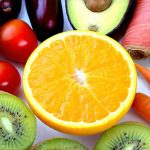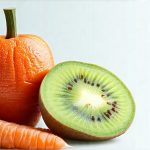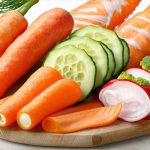Diarrhea can be an incredibly disruptive experience, leaving you feeling weak, dehydrated, and generally unwell. Beyond simply stopping the diarrhea itself, proper recovery is crucial for restoring your gut health and replenishing lost nutrients. Many people focus solely on stopping the symptoms but neglect the essential rebuilding phase that follows. A well-planned diet isn’t about restrictive limitations; it’s about strategically choosing foods that are gentle on your system while actively supporting its repair. It’s a period where mindful eating can significantly speed up your return to feeling normal and energetic.
Recovering from diarrhea requires more than just avoiding trigger foods. It necessitates a deliberate approach focused on rehydration, replenishing electrolytes, and gradually reintroducing easily digestible nutrients. The goal is to give your digestive system a chance to rest and heal without being overloaded or irritated. This isn’t about deprivation; it’s about smart food choices that support your body’s natural recovery processes.
Rehydration and Electrolyte Replacement
The most immediate concern after diarrhea subsides is rehydration. Diarrhea causes significant fluid loss, leading to dehydration which can manifest as fatigue, dizziness, and even more serious complications. Water is essential, but it’s not the whole story. When fluids are lost through diarrhea, so are vital electrolytes – sodium, potassium, magnesium, and chloride – all of which play critical roles in bodily functions. Simply drinking water may not be enough to fully restore balance.
Oral rehydration solutions (ORS) like Pedialyte or homemade versions using water, a pinch of salt, and a small amount of sugar can be incredibly effective. These provide the necessary electrolytes in balanced proportions. Beyond ORS, sipping on clear broths, diluted fruit juices (avoiding highly sugary options), and herbal teas can also contribute to rehydration. Avoid caffeinated beverages and alcohol, as these can further dehydrate you. Focus on small, frequent sips rather than large gulps of fluid.
The BRAT Diet & Beyond: Reintroducing Foods Gradually
The BRAT diet – Bananas, Rice, Applesauce, Toast – has long been a go-to recommendation for post-diarrhea recovery. These foods are bland, low in fiber, and easy to digest, making them less likely to irritate the gut. However, relying solely on the BRAT diet for an extended period isn’t ideal as it lacks essential nutrients. It’s a good starting point but should be expanded upon relatively quickly.
The key is gradual reintroduction of foods. Start with small portions and monitor your body’s response. As you tolerate these initial foods, slowly introduce other easily digestible options like plain crackers, boiled potatoes (without skin), and cooked carrots. Avoid fatty, fried, spicy, or highly seasoned foods initially, as they can exacerbate symptoms. Dairy products may also need to be reintroduced cautiously, as lactose intolerance can sometimes develop temporarily after diarrhea.
Expanding Your Diet: What To Include & When
Once you’re tolerating the BRAT diet and other easily digestible options, you can start expanding your food choices. Lean proteins like chicken or fish (baked or steamed, not fried) are good additions. Oatmeal is another excellent option, providing fiber without being overly harsh on the gut. Consider incorporating probiotic-rich foods like yogurt (if tolerated) to help restore beneficial gut bacteria. Fermented foods such as kefir can also be incredibly beneficial.
Pay close attention to how your body reacts to each new food. If you experience any bloating, cramping, or recurrence of diarrhea after introducing a particular food, remove it from your diet temporarily and try again later. Don’t rush the process; allow your digestive system time to adjust. Remember, everyone is different, so what works for one person may not work for another.
Foods To Avoid During Recovery
Certain foods should be avoided or limited during the recovery phase. High-fat foods are difficult to digest and can worsen diarrhea. Spicy foods, including those with chili peppers or strong seasonings, can irritate the digestive tract. Caffeine and alcohol act as diuretics, contributing to dehydration. Artificial sweeteners and sugar alcohols can also cause gastrointestinal distress in some individuals.
Foods high in insoluble fiber like raw vegetables, whole grains, and beans should be introduced gradually and in small amounts. Dairy products, if causing issues, may need to be avoided until your gut has fully recovered. It’s important to listen to your body and avoid anything that triggers symptoms.
Long-Term Gut Health & Prevention
While the immediate recovery phase is crucial, maintaining long-term gut health can help prevent future episodes of diarrhea. A diet rich in fiber (from sources like fruits, vegetables, and whole grains once tolerated) supports a healthy microbiome. Probiotic supplements or probiotic-rich foods can also contribute to a balanced gut ecosystem. Staying adequately hydrated and managing stress levels are also important factors.
Ultimately, recovering from diarrhea is about more than just treating the symptoms; it’s about nurturing your digestive system back to health. By following a gentle, gradual dietary approach and prioritizing hydration, you can significantly speed up your recovery and minimize discomfort.
By focusing on rehydration, carefully reintroducing foods, and listening to your body’s signals, you will be well on your way to feeling like yourself again. Remember that patience is key during this process – give your gut the time it needs to heal and rebuild, and prioritize gentle nourishment over quick fixes.


















